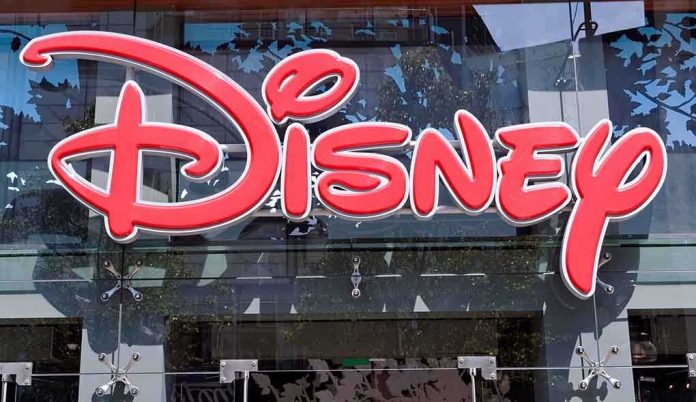
A Disney superfan’s lifelong devotion ended not in a fairytale, but in a tragic final act inside the “happiest place on earth”—raising urgent questions about the powerful grip of nostalgia, the silent battles of mental health, and the shadows that sometimes lurk behind our most cherished escapes.
Story Snapshot
- A lifelong Disney devotee, Summer Equitz, died by suicide at Disney World’s Contemporary Resort after a period of public joy and private struggle.
- Her deep connection to Disney spanned childhood dreams, professional work, and major life milestones, culminating in her final moments at the iconic resort.
- The incident reignited scrutiny on mental health support at major resorts and the phenomenon of individuals choosing meaningful sites for closure.
- Online rumors and misinformation complicated the tragedy, but authorities clarified the circumstances and cause of death.
A Lifelong Love for Disney with a Darker Undercurrent
Summer Equitz’s story began as many Disney tales do—childhood wonder, magical dreams, and a longing to belong to something bigger. She transformed that passion into action, working as a character performer and entertainment host at Disneyland in California between 2012 and 2015. Her social media overflowed with Disney memories, photos with beloved characters, and even a snapshot with Disney CEO Bob Iger that she proudly shared in 2021. Equitz was not just a fan; she was woven into the tapestry of Disney culture. Her devotion went far beyond souvenirs and snapshots—it guided her career, friendships, and even her marriage, which she celebrated with a honeymoon at Disney World in 2024.
When Equitz announced her pregnancy in December 2024, friends and followers cheered her on, many watching as she chronicled her journey through the lens of Disney magic. The expectation: a storybook continuation, a new chapter of happiness. But in October 2025, everything changed. She vanished from her Naperville, Illinois home, setting off a wave of concern, desperate social media appeals, and, finally, heartbreak. Her body was found at Disney World’s Contemporary Resort on October 14, 2025. The Orange County Medical Examiner ruled her death a suicide from multiple blunt impact injuries, putting to rest swirling online rumors—including false claims of a monorail accident.
Rumors, Reality, and Clarifying the Facts
The collision of fact and fiction played out in real time, with social media posts speculating wildly about the circumstances of Equitz’s death. Law enforcement and the medical examiner’s office intervened quickly, confirming the cause of death and firmly dismissing stories about a monorail incident. Disney, for its part, offered no public statement, leaving the official record to be shaped by investigators and the family’s earlier appeals. While the internet churned, the reality remained: a young woman, celebrated for her enthusiasm and warmth, had lost her private battle in a place that meant everything to her.
💔 31-year-old Summer Equitz, a Disney superfan from Naperville, Illinois, was found dead at Walt Disney World’s Contemporary Resort.
– Authorities ruled it an apparent suicide
– She had vanished from her home months earlier#Disney #SummerEquitz #LoveYourW #paobc pic.twitter.com/67Gz9QBGrd— GlobeUpdate (@Globupdate) October 16, 2025
Equitz’s family, who had once turned to the public for help in the search, withdrew into grief, deleting earlier posts and avoiding the media spotlight. The Disney fan community, meanwhile, was left to grapple not only with shock and sadness but also with the uncomfortable truth that even the most magical places can’t always banish pain or despair.
The Phenomenon of Seeking Solace at Symbolic Sites
Disney historian Jim Hill and other experts have noted a recurring, if rarely discussed, pattern: some individuals, facing overwhelming personal struggles, seek closure or solace at places imbued with personal happiness. For Equitz, Disney World was more than a theme park—it was the through line of her life, the backdrop to her most cherished memories, and, tragically, the setting for her final act. This phenomenon, while still rare, raises important questions about the emotional weight such locations carry for devoted fans.
Mental health professionals, while not quoted directly in this case, consistently emphasize the complexity of suicide and the importance of accessible support. The Equitz tragedy has reignited debates about what, if anything, major resorts like Disney can or should do to better identify and support guests in crisis. For now, the responsibility for prevention remains shared—between corporations, communities, and the individuals themselves.
Aftermath, Lessons, and the Conversation Ahead
With the investigation closed, public focus has shifted to broader implications. Equitz’s death has spurred renewed scrutiny on mental health resources at major entertainment venues. Some advocates argue that companies like Disney, given their emotional significance for millions, have a heightened responsibility to ensure robust crisis intervention and staff training. Others point out the limits of corporate responsibility in the face of deeply personal struggles. The incident has also forced fans and observers alike to reconsider the narratives we attach to places of joy and the expectations we place on them to heal, inspire, or rescue.
The tragedy of Summer Equitz is a stark reminder: nostalgia and fandom can offer comfort, belonging, and purpose, but they are not substitutes for mental health support or human connection. As the Disney community mourns, the discussion continues—not just about the magic we chase, but the help we must offer to those who struggle, even in the world’s most enchanted places.
Sources:
LADbible, “Tragic details emerge as superfan dies by suicide at Disney World”
New York Post, “Disney superfan announced she was pregnant 10 months …”
Daily Mail, “Disney superfan, 31, vanishes from her Midwest home …”
The Sun, “Disney superfan, 31, dies by suicide at Disney World after …”



